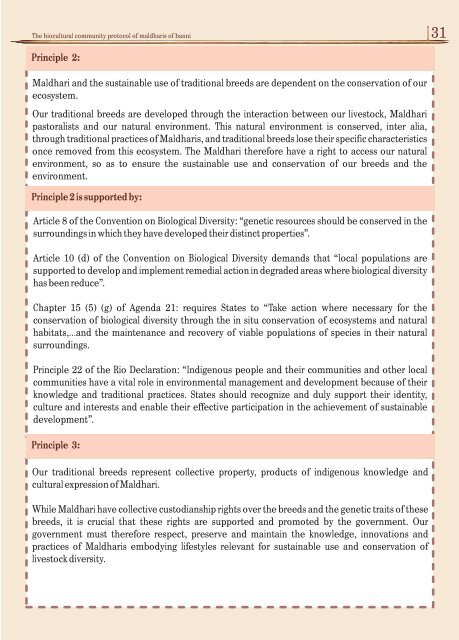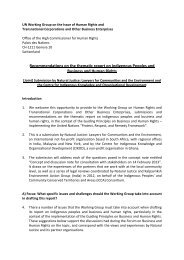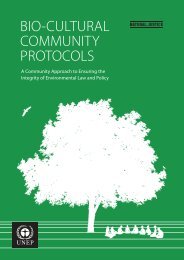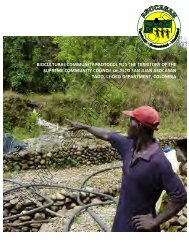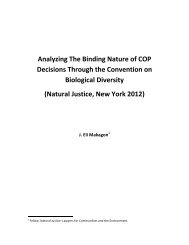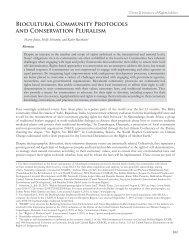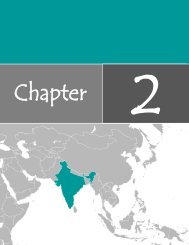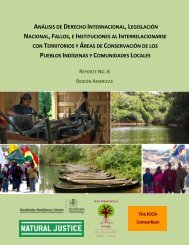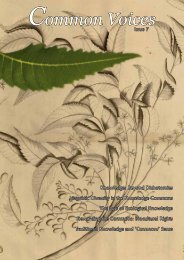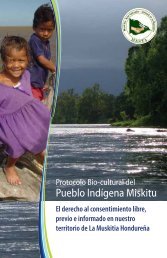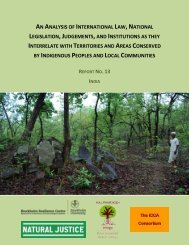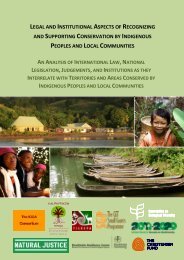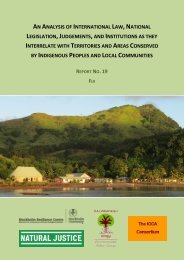Copy of bcp 18112011 English - Natural Justice
Copy of bcp 18112011 English - Natural Justice
Copy of bcp 18112011 English - Natural Justice
Create successful ePaper yourself
Turn your PDF publications into a flip-book with our unique Google optimized e-Paper software.
The biocultural community protocol <strong>of</strong> maldharis <strong>of</strong> banni31Principle 2:Maldhari and the sustainable use <strong>of</strong> traditional breeds are dependent on the conservation <strong>of</strong> ourecosystem.Our traditional breeds are developed through the interaction between our livestock, Maldharipastoralists and our natural environment. This natural environment is conserved, inter alia,through traditional practices <strong>of</strong> Maldharis, and traditional breeds lose their specific characteristicsonce removed from this ecosystem. The Maldhari therefore have a right to access our naturalenvironment, so as to ensure the sustainable use and conservation <strong>of</strong> our breeds and theenvironment.Principle 2 is supported by:Article 8 <strong>of</strong> the Convention on Biological Diversity: “genetic resources should be conserved in thesurroundings in which they have developed their distinct properties”.Article 10 (d) <strong>of</strong> the Convention on Biological Diversity demands that “local populations aresupported to develop and implement remedial action in degraded areas where biological diversityhas been reduce”.Chapter 15 (5) (g) <strong>of</strong> Agenda 21: requires States to “Take action where necessary for theconservation <strong>of</strong> biological diversity through the in situ conservation <strong>of</strong> ecosystems and naturalhabitats,…and the maintenance and recovery <strong>of</strong> viable populations <strong>of</strong> species in their naturalsurroundings.Principle 22 <strong>of</strong> the Rio Declaration: “Indigenous people and their communities and other localcommunities have a vital role in environmental management and development because <strong>of</strong> theirknowledge and traditional practices. States should recognize and duly support their identity,culture and interests and enable their effective participation in the achievement <strong>of</strong> sustainabledevelopment”.Principle 3:Our traditional breeds represent collective property, products <strong>of</strong> indigenous knowledge andcultural expression <strong>of</strong> Maldhari.While Maldhari have collective custodianship rights over the breeds and the genetic traits <strong>of</strong> thesebreeds, it is crucial that these rights are supported and promoted by the government. Ourgovernment must therefore respect, preserve and maintain the knowledge, innovations andpractices <strong>of</strong> Maldharis embodying lifestyles relevant for sustainable use and conservation <strong>of</strong>livestock diversity.


